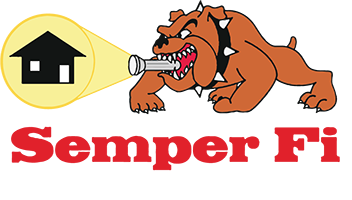Your home features many large appliances that are hard-wired into your electrical system, and can not simply be switched off. These include your dishwasher, dryer, oven, and refrigerator.
Larger appliance means it can be harder to save energy used by these devices. Remember, we are working on many small steps that together add up to savings over time.
Ceiling Fan Benefits
Especially in Texas we are always looking for ways to stay just a bit cooler. Your ceiling fan likely uses the least energy of any fan system in your home – including your air conditioner (which likely isn’t surprising) and even your bathroom fan.
Your ceiling fan helps mix hot and cool air in your interior. This more efficient mixing means your thermostat will be reading the temperature from cooler mixed air, rather than the warmer, stale air that it may otherwise be measuring. Overall this reduces the energy consumption of your A/C system, making your fan an appliance that actually saves you money while running.
Also, having that moving air can actually help you feel about 10 degrees cooler than if you were sitting in the same conditioned air without a fan – and in Dallas and Fort Worth during July and August, every degree helps!
Keep Cold Food Cold
Every time you put warm foods into the refrigerator, this causes the air inside to get warm. Your refrigerator’s only job is to keep the interior at a certain cold temperature, so every time the air inside is warmed up, it requires your refrigerator to work harder.
Quickly replace cold items – like that carton of milk or juice – back into the refrigerator after use. And let cooked items cool down naturally before you place leftovers into the refrigerator. Both of these will allow the air inside to remain just a bit colder, and that action adds up over time.
Clean the Lint Trap
If your clothes dryer is taking longer to dry your clothes, the first thing you should do is check the lint trap.
Similar to cleaning your air filters, cleaning your lint trap means your dryer does not have to work as hard – because air flow is not being blocked. This energy-saving tip will save you money and time and as an added bonus, cut down the number of times you have to wear damp pants to work.
Typically, your lint trap will be readily marked and easily accessible. But, if you are having trouble finding it, look in your manual or do a simple online search.
Dryer lint is also a leading cause of house fires, so cleaning the lint trap after every load is just a good practice.
Minimize Dishwasher Usage
Most dishes, silverware and glasses can be cleaned sufficiently with a simple bit of soap and water. If you’re like most people, you’re probably running your dishes under water before loading them into your dishwasher anyway.
If you’re really committed to saving energy, you can take this rinse up a notch for most of your dishes used for eating and turn that pre-dishwasher rinse into a wash – and save on a couple loads of dishes during the week. Unless you’re dealing with hard stains or baked-on grease, the dishwasher can waste a lot of hot water and electricity.
At a minimum, to save energy you should only run your dishwasher when it is completely full, which minimizes the number of times that you will be running it.
Saving Energy Series: Air Conditioner
For commercial property inspections in the Dallas/Fort Worth area, including a thorough and informative home inspection report, learn more at
or request a quote for a commercial inspection at
682-351-2267



